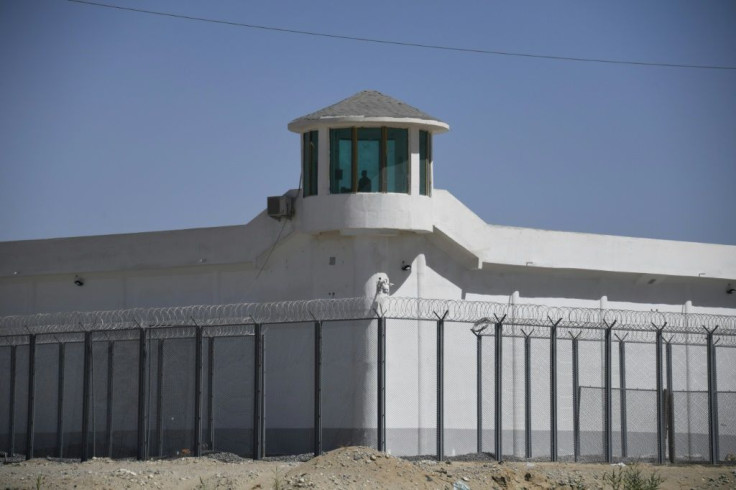China Accuses EU Of 'Hypocrisy' Over Uyghur Row
Beijing accused the EU of "hypocrisy" on Wednesday after the two sides summoned each other's envoys in an escalating row over the treatment of China's Muslim Uyghurs.
France, Germany and other EU nations called in Chinese ambassadors to protest against sanctions imposed by Beijing targeting their citizens, including five members of the European Parliament as well as two EU bodies and two think-tanks.
The sanctions were a tit-for-tat response after the EU, Britain and Canada blacklisted four former and current officials in China's Xinjiang region.
China called in the EU and British envoys in Beijing over the coordinated move.
Rights groups say at least one million Uyghurs and other mostly Muslim minorities have been incarcerated in camps in Xinjiang, where authorities are also accused of forcibly sterilising women and imposing forced labour.
China has strongly denied the allegations, saying training programmes, work schemes and better education have helped stamp out extremism in the northwest region and raise income.
"The EU only allows itself to arbitrarily smear and attack others, and even arbitrarily imposes sanctions based on false information and lies, but does not allow the Chinese to talk back or fight back," said foreign ministry spokeswoman Hua Chunying at a press briefing.
"This in itself is double standards, a manifestation of bullying and hypocrisy."

Washington, which had already imposed sanctions on two of the Chinese officials in July 2020, extended them to two others.
It is leading a drive to form a united front against China on issues from rights abuses in Xinjiang and Hong Kong to Beijing's claims over the South China Sea.
China had until recently enjoyed relatively cordial relations with the EU, which has been muted over alleged rights abuses as it hunts a trade pact with the world's second largest economy.
The European Union and China in December approved "in principle" a major investment pact after seven years of painstaking negotiations -- but it is still expected to take months to be finalised and fully ratified as a legal text.
Hua said China did "not accept the unreasonable practice of some European countries in summoning Chinese ambassadors."
The tensions come as the EU seeks to formulate a strategy on China at a time when tensions between Beijing and Washington are emerging as the world's number one geopolitical issue.
Beijing also released a report on Wednesday detailing what it said were human rights abuses committed in the US, citing gun crime, violence towards ethnic minorities and the way Washington has tackled the Covid-19 outbreak.
"The United States, which has always considered itself an exception and superior, saw its own epidemic situation go out of control, accompanied by political disorder, inter-ethnic conflicts, and social division," the report claimed.
© Copyright AFP 2024. All rights reserved.





















